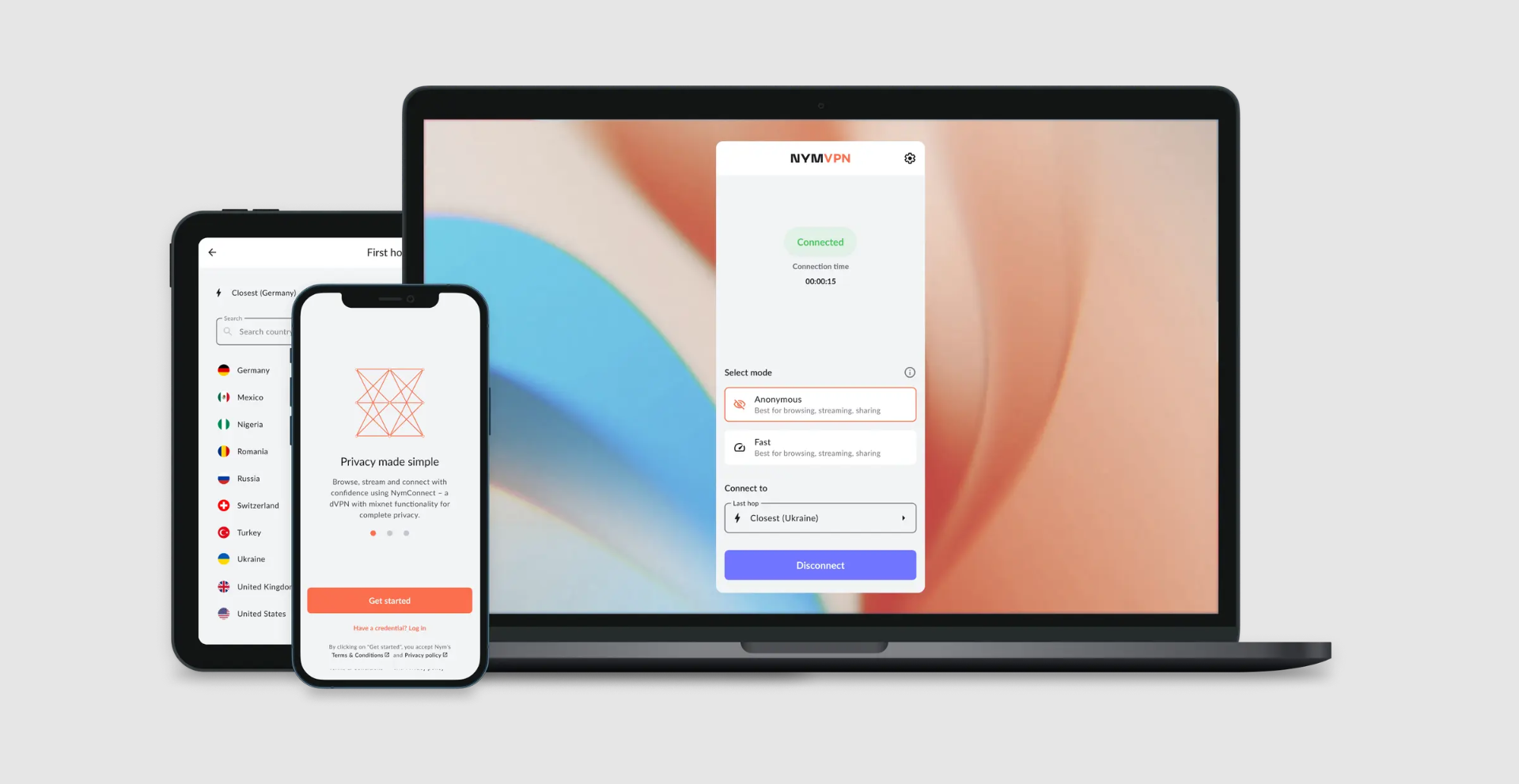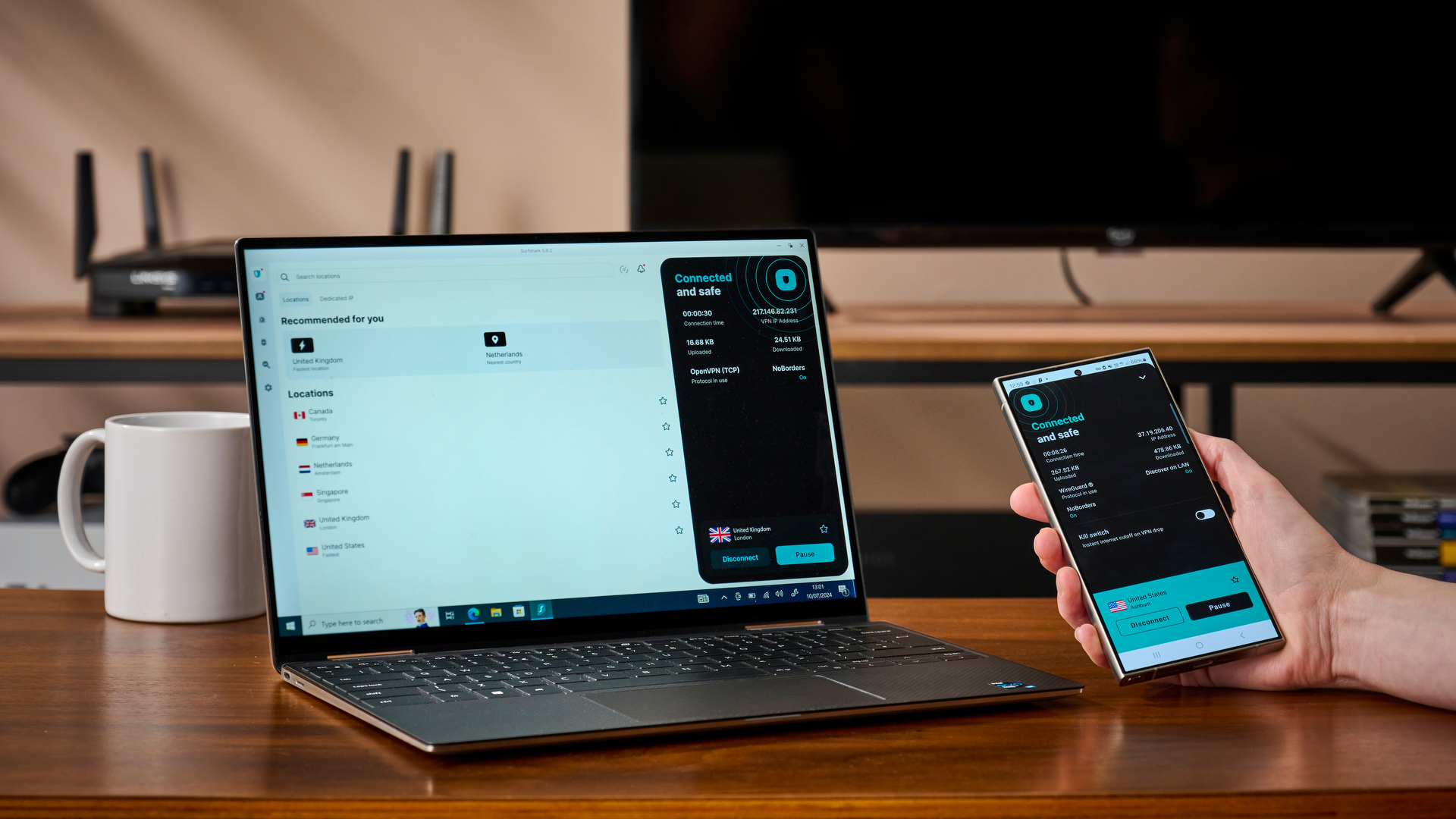
A New Year approaches, and it's traditionally a time for reflection – even in the world of cybersecurity. The TechRadar team is constantly testing and reviewing the best VPNs, which means we get to check out all sorts of services.
Today, I'll shine a light on three of the most promising VPNs out there. I've highlighted a mixture of providers to keep an eye on – a big name, a solid free service, and a new innovator. Together, they're bound to create waves in 2025. Let's begin.

1. Nym VPN
This ambitious project aims to combine decentralized privacy with blockchain technology. As outlined in our comprehensive NymVPN review, the provider is a distributed privacy solution that seeks to address the trust limitations of traditional VPNs.
Tricky tech talk aside, this innovative approach does away with the need to trust any of the VPN server providers in your network. Instead, it uses a Mixnet to route traffic through distributed nodes to obfuscate its origin.
NymVPN is an interesting experiment in crypto-driven anonymity
I wouldn't go so far as to refer to Nym as a one-trick pony, but it does rely very heavily on Mixnet. The way it works is that, instead of a normal VPN that routes your traffic through a single VPN server, NymVPN uses a distributed set of "nodes" (servers provided by volunteers) that all route your traffic back and forth – similar to Tor.
However, the difference is that NymVPN bakes all of this functionality into a cryptocurrency ecosystem that allows node operators to be rewarded for providing high-quality networking to the Mixnet (after all, bandwidth isn't free).
Additionally, the client is still only available in beta, which feels incomplete and lacks essential features like strong speeds in anonymous mode, as well as a kill switch. Just like the kill switch, split tunneling is reportedly "on the way," but in the meantime, you're left with a VPN that's little more than a connect button and a list of countries to choose from (29 of them to be exact, across Europe and Asia).
At the moment, NymVPN is an interesting experiment in crypto-driven anonymity. Since it's still missing some critical privacy features that make it useful as a secure VPN, it's not a VPN I'd recommend for day-to-day use.
The unique Mixnet setup also makes it abysmally slow (an average of 59.91 Mbps download and 16.85 Mbps upload), but one thing is certain: this is the VPN to look out for when it comes out of beta.

2. Windscribe
Windscribe is a VPN mainstay in most of our reviews and rankings, mainly because of its remarkable free plan and technical features. The reason why I see it as one of my VPNs to observe in 2025 is that it recently introduced significant updates.
To name just a few, it announced (and completed a huge audit of) FreshScribe, a major revamp of its infrastructure, along with no logging claims, a MAC spoofing addition to the apps (even Linux), support for quantum-safe TLS and OpenVPN, and many smaller app-related performance improvements.

Looking for the quickest provider on the block? Head on over to our roundup of the fastest VPNs of 2024.
FreshScribe is certainly one of the most significant aspects of this VPN provider - a new VPN infrastructure stack that covers components including RAM-disk VPN servers, the provisioning infrastructure, and various micro-services. As a result, Windscribe says customers should immediately see faster connection times that are more reliable.
Additionally, the service has talked about putting itself through an independent audit since at least 2022, and the good news is it finally happened. The detailed report results are on the Windscribe blog, meaning you no longer have to take the provider's no-log promises at face value.
In the new year, I'd like to see this provider become more user-friendly, which has continuously been one of its downsides. For instance, crafting a sleeker UI across its apps, as well as more reliable customer support and more support articles would be wonderful first steps in the right direction.

3. Surfshark
Although it's already a big name in the VPN sphere and landing a top 3 spot in our overall rankings, Surfshark has ample room for growth. In fact, because it's already such a reliable service, most of the improvements I'd like to see really come down to the nitty-gritty.
Off the bat, Surfshark is the VPN to choose if you're trying to avoid marketing surveillance and third-party snooping, as it offers a comprehensive set of privacy features at an affordable price.
I'd like to see Surfshark undergo more regular audits
It performs admirably in other relevant areas, too, including server capacity, content unblocking, and speed. As mentioned above, while it's at the top of our list mostly for its consistently high speeds, it continues to merely challenge for the top spot across other categories.
Where could it improve, then? I'd start with the fact that, even though it boasts an impressive swathe of extra tools and add-ons, it's still missing some basics – like port forwarding. It's a relatively small complaint, but the absence of this feature could be a major downside for torrenters.
Then, there's the transparency aspect – Surshark underwent an audit in January 2023. This is encouraging, but I'd like to see Surfshark take a leaf from ExpressVPN's book and undergo more regular inspections of its infrastructure, apps, and logging practices.
On a positive note, I'm glad to see Surfshark has introduced a new Bypasser tool for iPhone, and also fixed the kill switch bug we flagged during our previous testing round. Watch this space: Surfshark may overcome its rivals and claim the title of the best VPN overall in 2025.







